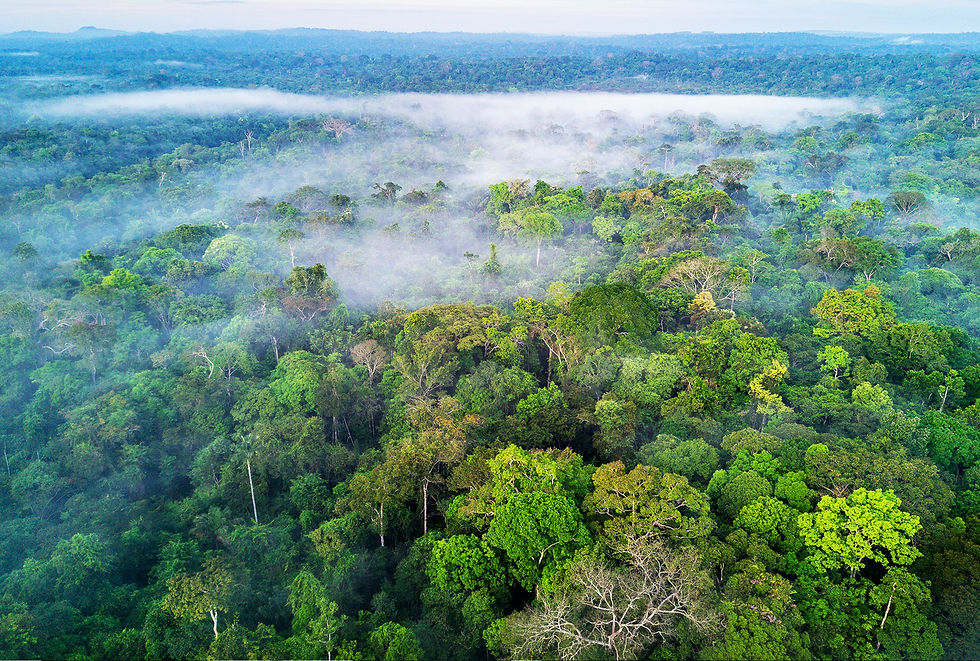Exploring the Intersection of Queer Ecology, Ecofeminism, and the Diversity of Natural Ecosystems
- Wende Brand

- Mar 4, 2024
- 3 min read
In the intricate tapestry of life on Earth, where every species and habitat intertwine in a delicate dance of interconnectedness, the principles of queerecology and ecofeminism offer profound insights into our relationship with the natural world. At the heart of both paradigms lies the recognition of diversity, interdependence, and the intrinsic value of all living beings. By embracing these perspectives, we can deepen our understanding of ecological systems while also fostering inclusivity and justice within human societies.
Queer ecology challenges traditional narratives of nature by acknowledging the fluidity and diversity of gender and sexuality within the animal kingdom. Just as human societies encompass a spectrum of identities and expressions, so too do non-human species. From the intricate courtship rituals of birds to the diverse mating strategies of fish and insects, nature thrives on variation and adaptation. By celebrating this diversity, queer ecology invites us to reconsider our assumptions about the natural world and to embrace a more inclusive vision of biodiversity.

Amazon rainforest
Ecofeminism, on the other hand, explores the interconnected oppressions of gender, race, class, and ecology, recognizing the ways in which systems of domination manifest both in human societies and in our treatment of the environment. At its core, ecofeminism advocates for a shift away from hierarchical, patriarchal modes of thinking towards more egalitarian and sustainable ways of living. By highlighting the parallels between the exploitation of women and the exploitation of nature, ecofeminism calls attention to the interconnectedness of social and environmental justice issues.
At the intersection of queerecology and ecofeminism lies a profound appreciation for the diversity of natural ecosystems. From lush rainforests teeming with life to barren deserts teetering on the edge of survival, every habitat plays a vital role in the web of life. By recognizing the inherent worth of each ecosystem and the beings that inhabit it, we can begin to cultivate a deeper sense of respect and stewardship for the natural world.

Raja Ampat Coral Reef
Take, for example, the rich biodiversity of coral reefs. These underwater ecosystems are home to a dazzling array of species, from colorful fish to intricate coral formations. Yet, coral reefs are also among the most threatened habitats on the planet, facing pressures from climate change, overfishing, and pollution. By applying the principles of queerecology and ecofeminism, we can appreciate the beauty and complexity of coral reefs while also recognizing the need to protect and preserve them for future generations.
Similarly, the vast expanse of the Amazon rainforest holds untold riches in terms of biodiversity and ecological complexity. Yet, this precious ecosystem is under siege from deforestation, mining, and industrial agriculture. By centering the voices of indigenous communities who have lived in harmony with the rainforest for millennia, we can learn valuable lessons about sustainable stewardship and the importance of preserving cultural and ecological diversity.
In urban environments, too, queerecology and ecofeminism offer valuable insights into the ways in which human societies interact with the natural world. By creating green spaces that are inclusive and accessible to people of all genders, sexual orientations, and socio-economic backgrounds, we can foster a deeper sense of connection to the environment and promote community resilience in the face of climate change.

Namibia Desert
Ultimately, the principles of queerecology, ecofeminism, and the diversity of natural ecosystems remind us that we are all interconnected, both with each other and with the living world around us. By embracing diversity, fostering inclusivity, and working towards justice and sustainability, we can build a more equitable and harmonious relationship with the planet we call home.
Written by an AI on my request




Comments